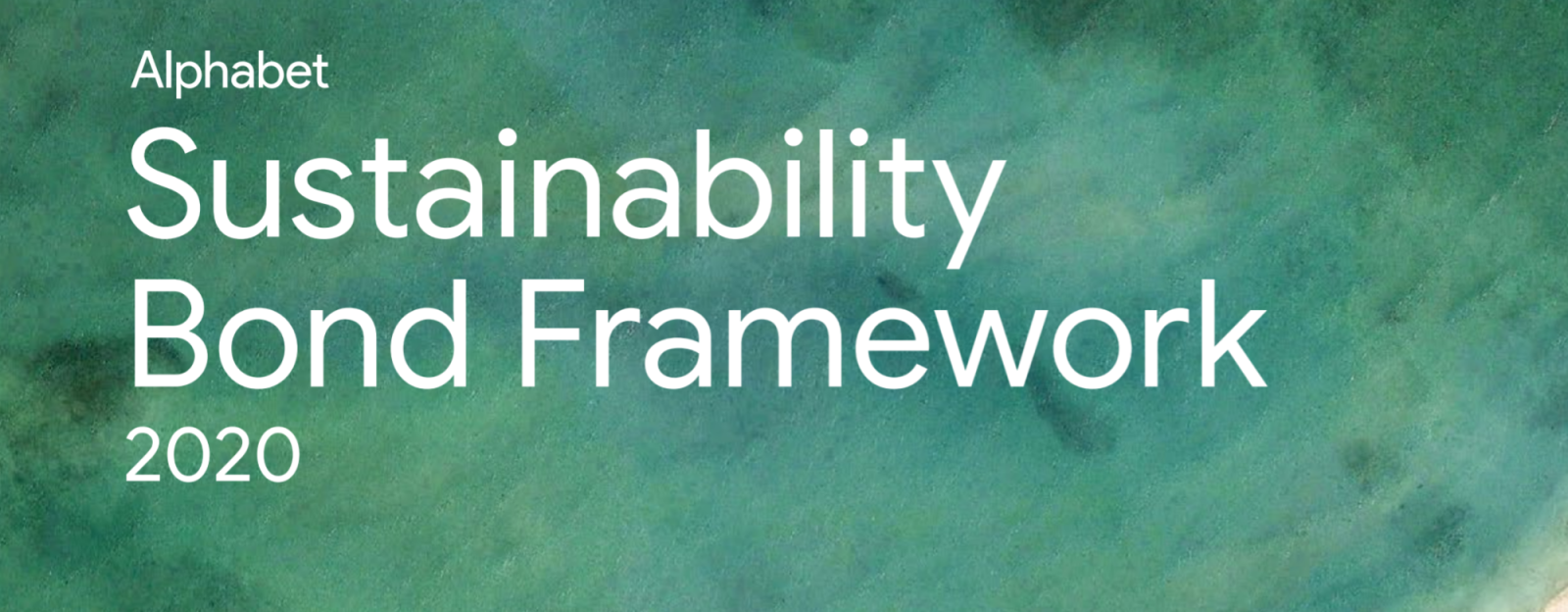04 Aug 2020 Alphabet launches largest sustainable bond offering ever, but this new frontier is not without risks
Alphabet has launched one of the largest sustainable bond offerings to be ever recorded, devoted to funding ongoing and new green and social justice-oriented projects. Sustainable bonds are not without risk of social washing and investor monitoring is much needed.
The Covid-19 pandemic has boosted the offering of socially-related bonds, as underlined in our previous article (http://en.sustainablevalueinvestors.com/2020/07/15/social-impact-bonds-have-outpaced-green-bonds-during-covid-19-pandemic/). Sustainability bonds differ from pure Social Bonds insofar as their proceeds are used to support investments in both environmental and social initiatives.
The latest news in the sector comes from Alphabet, Google’s parent company, which launched one of the largest sustainable bond offerings to be ever recorded. Of a total $10bn debt sale, $5.75bn are devoted to funding ongoing and new green and social justice-oriented projects. Eight main areas of intervention were listed: energy efficiency, clean energy, green buildings, clean transportation, circular economy and design, affordable housing, commitment to racial equity, support for small business and Covid-19 response.
This transaction is part of Google’s five-year sustainability strategy and comes after significant financial investments that were already committed over the years in green energy, with carbon neutrality achieved in 2007 and the matching of their entire electricity consumption with renewables for the past three years. A similar transaction, operated by one of the world giants, will hopefully put competitive pressure on other corporations and help develop further this new emerging asset class.
Despite this positive trend, however, the market should be attentive to how these funds are then actually used. In June, Standard & Poor’s, in particular, warned about the risk of social washing, a concept that is analogous to the one of greenwashing for environmental matters. A recent example is the one of Pfizer, whose $1.25bn bond issuance in March was related to some sustainability projects, but the investor prospectus noted instead that funds could temporarily be used for short-term investments or to repay other borrowings.
The risk is particularly heightened as the social segment has developed more recently that the environmental one, and hasn’t had yet the time to develop broad conversations and mutually-accepted tools to discriminate between what is good and what is bad. Industry set standards are hence likely to become of increasing importance in the future. One example is represented by the Social Bond Principles (SBP) put forth by the International Capital Market Association: last updated in June, they “promote integrity in the Social Bond market through guidelines that recommend transparency, disclosure and reporting,” and are based upon four core components, namely (i) use of proceeds, (ii) process for project evaluation and selection, (iii) management of proceeds, and (iv) reporting. Alphabet, for instance, precisely built its Sustainability Bond Framework 2020 around these pillars, establishing eligibility criteria, intended environmental and/or social benefits, and sample impact metrics to be used in the yearly report.
For further information see the following links:
- https://www.ft.com/content/d986ad76-e131-43c7-8513-1498a27c12f2
- https://blog.google/alphabet/alphabet-issues-sustainability-bonds-support-environmental-and-social-initiatives/
- https://www.ft.com/content/d35d1abc-0a4e-4e09-a776-154a469ef8de
- https://www.icmagroup.org/green-social-and-sustainability-bonds/social-bond-principles-sbp/
- https://abc.xyz/investor/static/pdf/SustainabilityBondFramework2020.pdf
- https://www.blog.google/outreach-initiatives/environment/meeting-our-match-buying-100-percent-renewable-energy/

